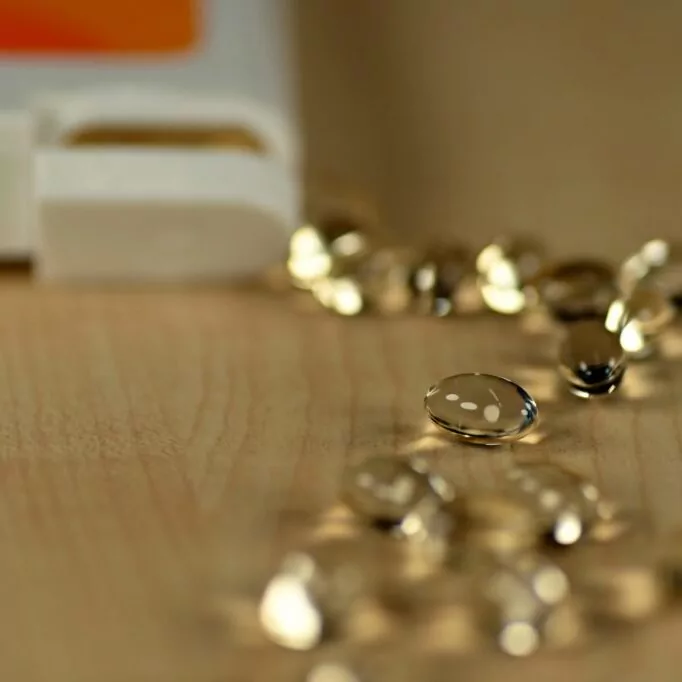Cat Health
How Nutrition and Diet Can Help Treat – and Prevent – Pet Medical Issues

A Corgi named Miakoda hadn’t even reached her first birthday when she started exhibiting concerning medical symptoms: lethargy, vomiting, and diarrhea. She also became reactive to other animals, according to her mom, Sarah Benson.
“I didn’t know why,” Benson recalled. “It just seemed like for a while she was always sick.”
An internal medicine specialist diagnosed Miakoda with inflammatory bowel disease (IBD), a chronic inflammatory disease of the intestines. By feeding Miakoda only a prescription hydrolyzed protein diet – and no treats – the dog bounced back. Throughout her life, she only had flares if someone gave her a treat without asking, or she found something on the ground that she wasn’t supposed to eat.
“It was really well managed,” Benson said. “I was really lucky.”
Nutrition and therapeutic diets can “absolutely” help contribute to the treatment of health problems in dogs and cats, according to VetScoop contributor Lindsey Bullen, DVM, DACVIM (Nutrition), adjunct professor at Lincoln Memorial University’s College of Veterinary Medicine and Fear Free certified veterinarian at BluePearl Veterinary Specialty Hospital of the Carolinas in Cary, North Carolina.
“Basically, pick any disease process, and we can affect it nutritionally, whether for the positive – which is my hope and my goal – or for the negative,” she says.
Examples of health issues that can be treated with diet include the following:
- Diabetes
- Kidney disease
- Obesity and metabolic diseases
- Gastrointestinal diseases
- Pancreatitis
- Cardiac disease
- Skin issues, including those arising from allergies
- Thyroid disease
- Dental disease
- Joint disease (from osteoarthritis to mobility in general)
- Cognitive disease
- Recovery from critical care and cancer
- Neurological issues
- Urinary disease
- Liver disease
As Dr. Bullen quipped, “Pick an organ and there’s probably a diet for it.”
In fact, she says nutrition needs to be included in any treatment plan for organ dysfunction or endocrine disease, and in some cases it should be the primary component of a treatment plan, such as chronic kidney disease (CKD), which is particularly common in aging cats and dogs.
Kidneys are responsible for removing waste from the blood so they can be excreted through urine (among other functions). When pets have CKD, kidneys can no longer excrete waste efficiently, so veterinarians might suggest reducing intake of food with phosphorus, sodium, calcium, potassium, and magnesium. But the plan will be calibrated according to blood work and other markers.
“Dietary manipulation can slow down the progression and the severity of chronic kidney disease in patients if it’s caught early and if appropriate nutritional therapy is instituted,” she says. “Diet has actually been shown to be the first line of therapy.”
Bullen emphasizes to “everybody I talk to” that every pet – every patient – is a unique individual.
“Just because I have a list of diets that should be appropriate in terms of nutrient profile, their response to the diets is going to be purely unique,” she explained. “So sometimes it can take a couple trials to figure it out.”
She’s seen that in practice as well as in her own home. She currently has two pets with inflammatory bowel disease: a tuxedo cat named Ida and a Boxer/German Shepherd mix named Heidi.
Cats with IBD can thrive on a high-quality gastrointestinal diet with chicken as the primary protein ingredient, though the best option for Ida turned out to be a therapeutic hydrolyzed soy protein diet with added amino acids to meet her nutritional needs (plus a renal formula because she also has kidney disease).
Her dog, Heidi, needed multiple diet trials before she settled on a therapeutic hydrolyzed diet with a soy and starch base.
“She’s doing very, very well finally – and she is on no steroids or immunosuppressants, which is awesome,” she says.
Bullen notes that as IBD progresses, sometimes medication is important to get a pet stabilized, but diet remains a key factor in making sure that nutritional deficiencies are corrected and metabolic needs are met and optimized.
Practical Applications
Veterinarians will adjust diet recommendations as a disease progresses. For instance, when a pet enters end stage cardiac disease, they might need a low or moderate level of protein since they may take medications that can hurt the kidneys, which in turn will cause difficulty processing protein. (Sodium content is always restricted to avoid contributing to hypertension or any excessive fluid that the heart needs to handle.)
In terms of dental disease, Bullen notes that not all kibble effectively scrapes teeth. But some kinds are designed to use mechanical abrasive force that can shear off tartar without breaking the tooth. Dental diets sometimes contain a chemical additive that makes it less likely for dental calculus to accumulate.
There can be a lot of online chatter about cancer diets for pets, such as restricting carbohydrates. Dr. Bullen reiterates that every patient is different – and treatments will depend on the cancer type and severity. While some patients, such as those with lymphoma, can benefit from high-protein, high-fat diets, if a dog or cat has kidney cancer, they might need less protein and more carbohydrates.
“There is no cure for cancer in the form of diet,” she emphasizes. “What we can do is support the patients and make sure that they are not wasting away because of cachexia, an active loss of lean muscle mass associated with a chronic disease state, so that the patient doesn’t have to use their own internal stores for energy.”
While she’s familiar with the accusation that veterinarians prescribe special diets to “make money,” it’s untrue, she says. Therapeutic diets cost more than most commercial pet foods because the companies have invested in help from veterinary nutritionists, research into digestibility, high-end ingredients, and quality control studies.
“It would be unethical as a doctor to recommend something that is not medically appropriate for my patients and I would never do that, ever,” Bullen says. “Many of those diets are sold only in the veterinary practice or via prescription not to make money, but to make sure that they’re actually safe and effective for the individual patient.”
That’s one more reason why she strongly recommends establishing a trusting relationship with a veterinarian early on in a pet’s life – or even prior to bringing one home.
“It’s just like any doctor: if you don’t click initially, it is okay to go find somebody else that you click with,” she advises. “Shop around and find somebody that you do trust and respect – and it should be mutually trusting and mutually respectful.”
The Veterinary Advantage
While a human on a diet might succumb to temptation and open up a snack drawer or refrigerator, our pets don’t have that option – which is another reason why nutrition can play a tremendous role in treating health issues in our dogs and cats.
“We are able to have such huge impacts in veterinary medicine because we are able to tightly control what our pets eat,” notes Angela Rollins, DVM, PhD, DACVIM (Nutrition), clinical associate professor of small animal nutrition at the University of Tennessee. “This is a major advantage compared to human dietitians trying to regulate their patients’ diet.”
Dr. Rollins has successfully treated pets with specific diets, like Sammy, a French Bulldog with severe intestinal lymphangiectasia, a rare digestive disorder. When she first saw Sammy, he was being treated with high doses of immunosuppressive medications and was emaciated.
“Despite eating a large amount of food, he continued to lose weight,” she recalls. “After placing Sammy on an appropriate low-fat, hypoallergenic diet, he was able to regain all the weight he lost – and then some – and was able to dramatically reduce his medication doses.”
Diet can also be used to help prevent health problems, from reducing the recurrence of bladder stones and improving joint health to a common issue: obesity. Studies have shown that obese dogs have a shorter lifespan, about two to three years, compared to dogs who maintain a healthy weight, she says.
When it comes to supplements, buyer beware. Because therapeutic diets designed to treat disease often use higher concentrations of certain nutrients, Dr. Rollins doesn’t often recommend supplementation to patients already eating an appropriate diet. She sometimes adds fish oil for patients with typical diets to help with a variety of diseases, such as arthritis, allergies, heart arrhythmias, and hyperlipidemia (when blood has too many fats, like cholesterol and triglycerides).
“Overall, there are a few supplements with good evidence to help with certain conditions, but there are many more supplements that are likely ineffective and not worth the extra cost,” she cautioned, adding that any dietary supplementation should be discussed with a veterinarian before use.
Homemade diet recipes can also be problematic because they pose an increased risk for nutrient imbalances. Additionally, raw foods pose a risk to both pets and people from pathogenic organisms such as bacteria.
She stressed the importance of discussing homemade diets with a board-certified veterinary nutritionist to avoid inadvertently harming a beloved pet. She recommends that typically, treats and human food should make up no more than 10 percent of a pet’s daily calorie intake.
“For example, if a dog eats about 400 calories per day from a balanced diet, they should receive less than 40 calories per day from ‘extras,’” she says.
While many human foods are safe for dogs, Dr. Rollins notes that grapes, raisins, chocolate, garlic, onions, and the sugar substitute xylitol (found in many sugar-free products) are toxic and should be avoided.
Ultimately, both board-certified veterinary nutritionists agreed that the safest bet is to talk to a trusted veterinarian about your pet’s diet (and any health matters), instead of Facebook groups or “Dr. Google.”
As Bullen advises:
“Your veterinarian is always going to be the best source to get any veterinary-related information. If they don’t know the answer, that is okay. We all don’t know everything, but they should be able to work with you and collaborate as a team to find the expert that you need for your pet, because it’s all about a team approach,” she said. “We’re all working together for the betterment of the human-animal bond.”
Did you find this helpful? Share it!
Questions for your Vet
- Is it okay to leave out food for my pets with an automatic feeder?
- Do you recommend using a measuring cup for pet food?
- How can I tell if my pet is a healthy weight?
- My pet is eating more/less. Does this mean something?
About VetScoop
Pets make our lives better. At VetScoop, we’re on a mission to return the favor by giving you access to trustworthy, science-based information so you can provide the best possible care for your pets.
Related Articles We Think You'd Like





